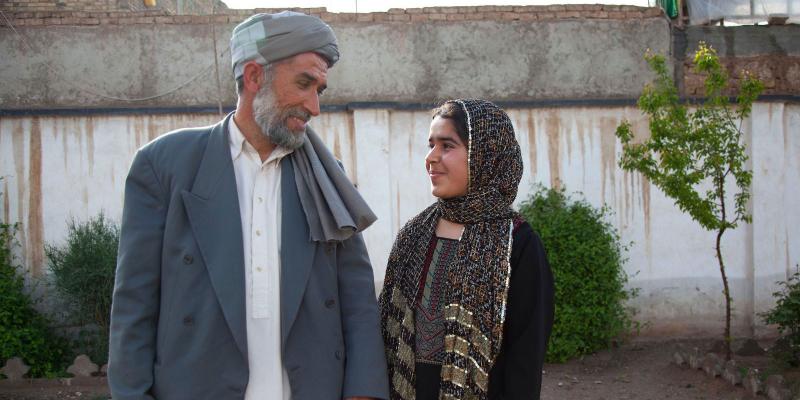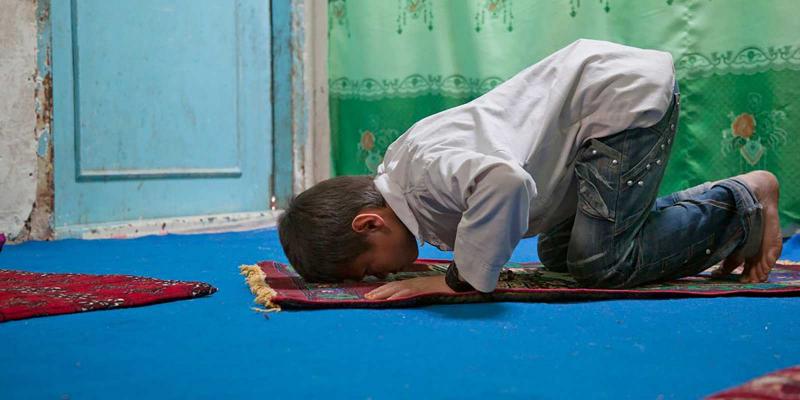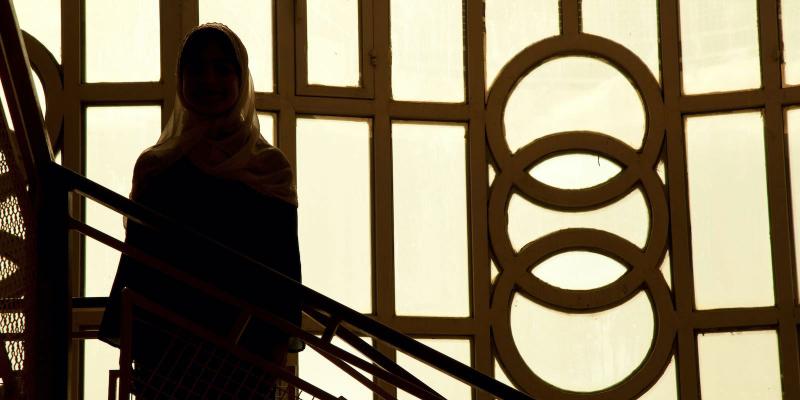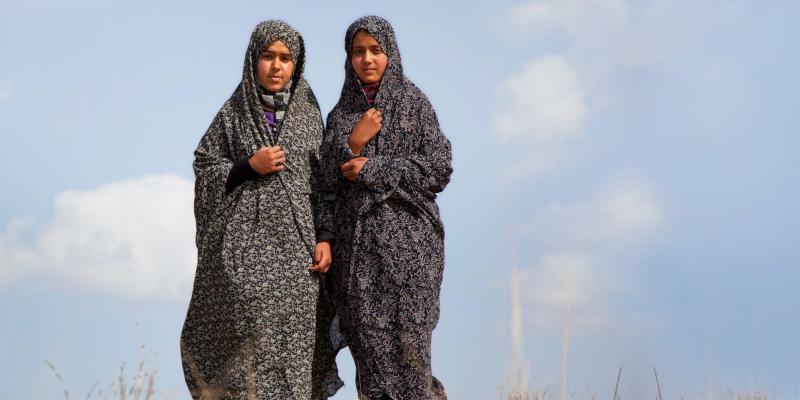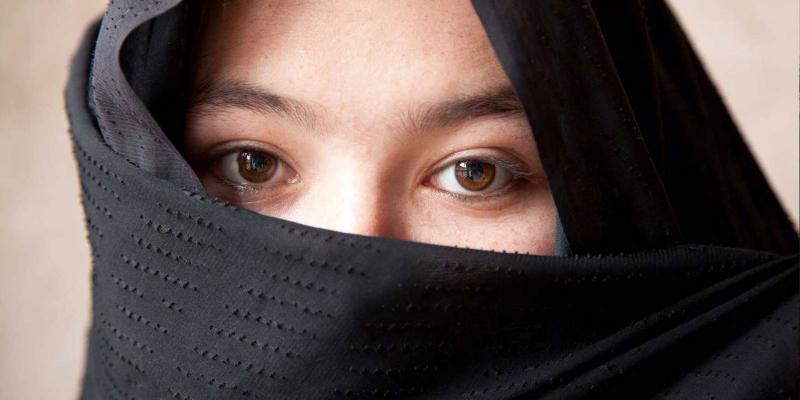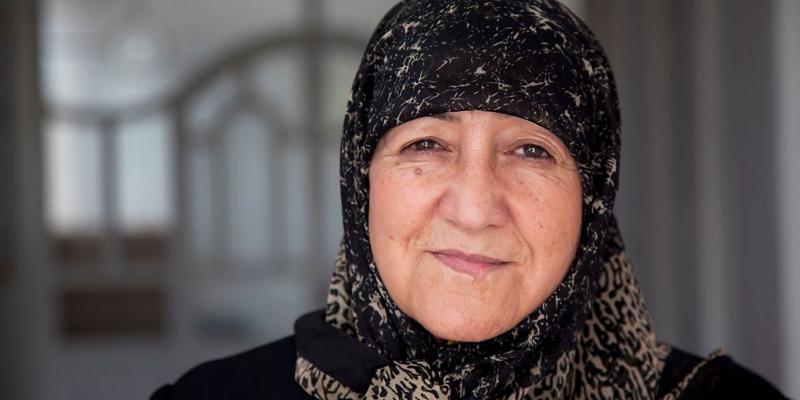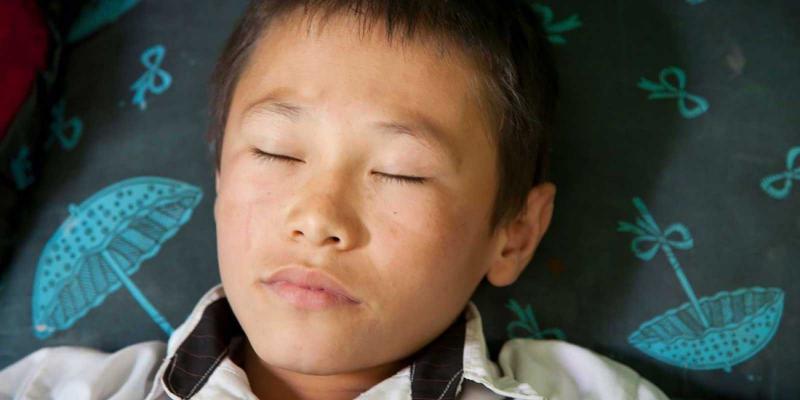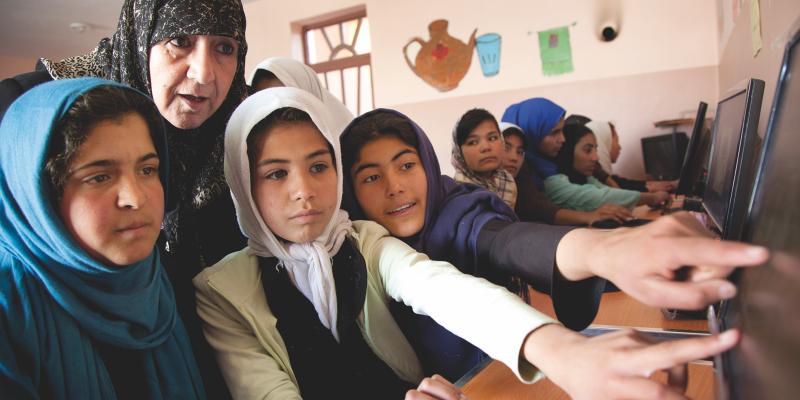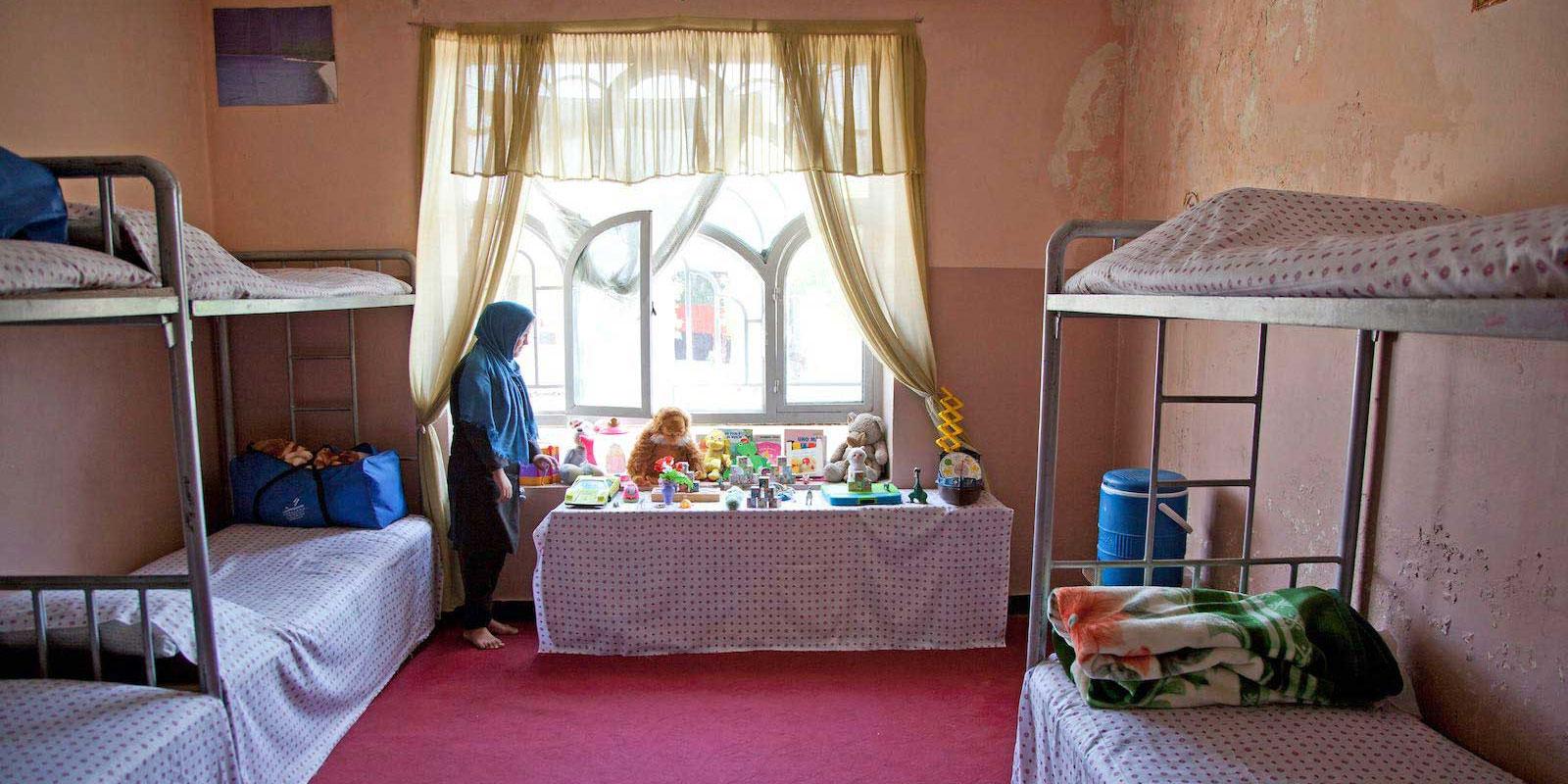
Aisha was orphaned early in her life. She was always very sad and refused to talk.
When Aisha grows up, she doesn’t remember much about her father. But she does recall that he had a nice face and a lovely dark beard. And she remembers hearing he’d been murdered. Aisha was sitting eating with her mother and younger sister when a relative came and told them the terrible news. Her father, Said, had been shot by thieves on his way to Iran to find work. Aisha’s mother, Makol, was very sad, but she drew her three children in close and said: “Don’t worry! I’ll make sure we get by. I will be like a mother and a father to you. It is God’s will. God gives life and God takes life, and we humans must accept our fate.”
Mother falls ill
Without a father to support the family, life became difficult. Their mother Makol took on cleaning work at hospitals and in rich homes, but she still couldn’t afford the rent. The family had to move from their house to a one-room house with an earthen floor, and could only afford to eat bread and drink tea. Soon, Makol fell ill. “Mother had something wrong with her heart. She couldn’t work, she just lay at home in bed. We got some rice from an aid organisation and from our neighbours, but no support from our relatives. Often we didn’t have anything to eat,” recalls Aisha. Her mother got weaker and weaker. One morning, she simply didn’t wake up. She had died during the night. A neighbour found Aisha and her sisters, sitting crying beside their mother.
To the orphanage
Aisha was taken to an orphanage. A concrete building in the middle of the city, with a big courtyard. There were lots of children there in the same situation. They tried to comfort Aisha. “They said don’t cry, we know how it feels. We have no mothers or fathers – only each other.” And it was true. Some of the children didn’t know where their parents were, and other children’s parents had been killed, were in prison, or were so poor that they couldn’t care for their children.“The girls at the orphanage said they’d be like my sisters and they gave me toys,” says Aisha. But she was inconsolable. “I missed my mother and I cried myself to sleep every night. I was only six years old and I didn’t really understand what it meant that my mother was dead. For a long time, I thought that one day she would come and get me from the orphanage.”
“For a while, I was so sad that I stopped talking. I didn’t join in with the classes, I just ran away and hid.”
A kind lady
There was a kind lady at the orphanage, called Bibi Gul. She saw how sad Aisha was, and came to see her in the evenings to tell her stories and cuddle her. Finally, Aisha started to talk again. “Could you be my mother?” asked Aisha.“You are safe with me,” answered Bibi Gul. So Aisha started to go to Bibi Gul’s room at bedtime and fall asleep in her bed. Bibi Gul would never shoo her away, although she was tired after a long working day. She waited till Aisha had fallen asleep and then carried her to her bunk bed. Bit by bit, Aisha began to feel safer and happier. She started to go to school. And she also started going to classes run by teachers from AIL. They came to teach the girls to sew, speak English, and use computers. A new world opened up before Aisha’s eyes.
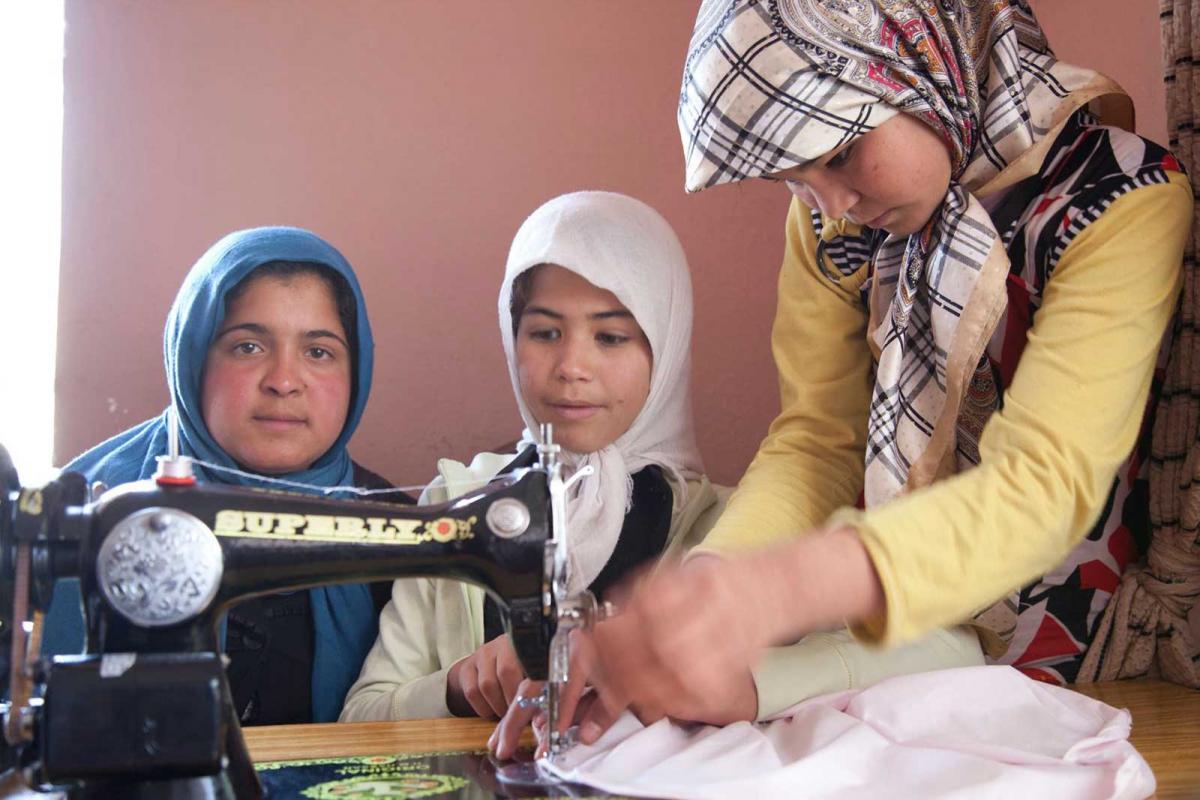
“Before I came here I didn’t know anything. I didn’t even know that ‘English’ was a language! I had never seen a computer. And I couldn’t even write my own name! Now I know so much, and I’m learning more all the time,” says Aisha, who is very fond of her teacher, Seddique from AIL.
Pacemaker
The years passed, and one morning when Aisha was eleven she was woken by a pain in her chest. “It felt like a knife in my heart. A knife slowly turning, round and round,” says Aisha.Just like her mother, she had a heart defect. Her heart was too weak to pump all the blood around her body. The doctor who examined her explained that Aisha needed an operation – otherwise, she could die. But it’s not possible to have a heart operation in Afghanistan. So the staff at the orphanage organised a concert, with singers and musicians who performed for free. All the ticket money went towards sending Aisha to Iran, to a modern children’s hospital.
“I was the only one who didn’t have my parents with me. But the other children and their mothers and fathers were kind. They gave me a book where they had all written messages or drawn pictures, and they prayed to God for everything to go well for me,” recalls Aisha.
She was put to sleep for the operation. “When I opened my eyes after the operation I was lying alone in a white room. At first, I thought I was dead, but then a doctor came in. He said that they had put in a pacemaker, a little machine that helped my heart to beat. I have a scar from the operation,” says Aisha.
Wants to help others
Back at the orphanage, Aisha felt better. But she still gets sudden chest pains from time. “Sometimes I wake up in the middle of the night with a sharp pain in my heart. It hurts so much. Then I lie awake and think about death, and about not wanting to die. Because there’s so much I want to do,” says Aisha.Even though she has a new pacemaker, Aisha still can’t run as fast as the other children. She gets tired and out of breath easily if she exerts herself. “Sometimes I wonder why God made my heart so weak. And I ask to be made healthy and well. I just want to be like other children,” says Aisha. But she’s doing really well at school.
“I love AIL’s lessons. They are much better than at the normal school. My teacher Seddique has changed my life. Now I know what I want, and I have plans for the future. One day, I want to speak English as well as my teacher. And know as much as she does about the world! Then I’ll become a teacher too, to help children who have a hard life. That’s my dream,” says Aisha.
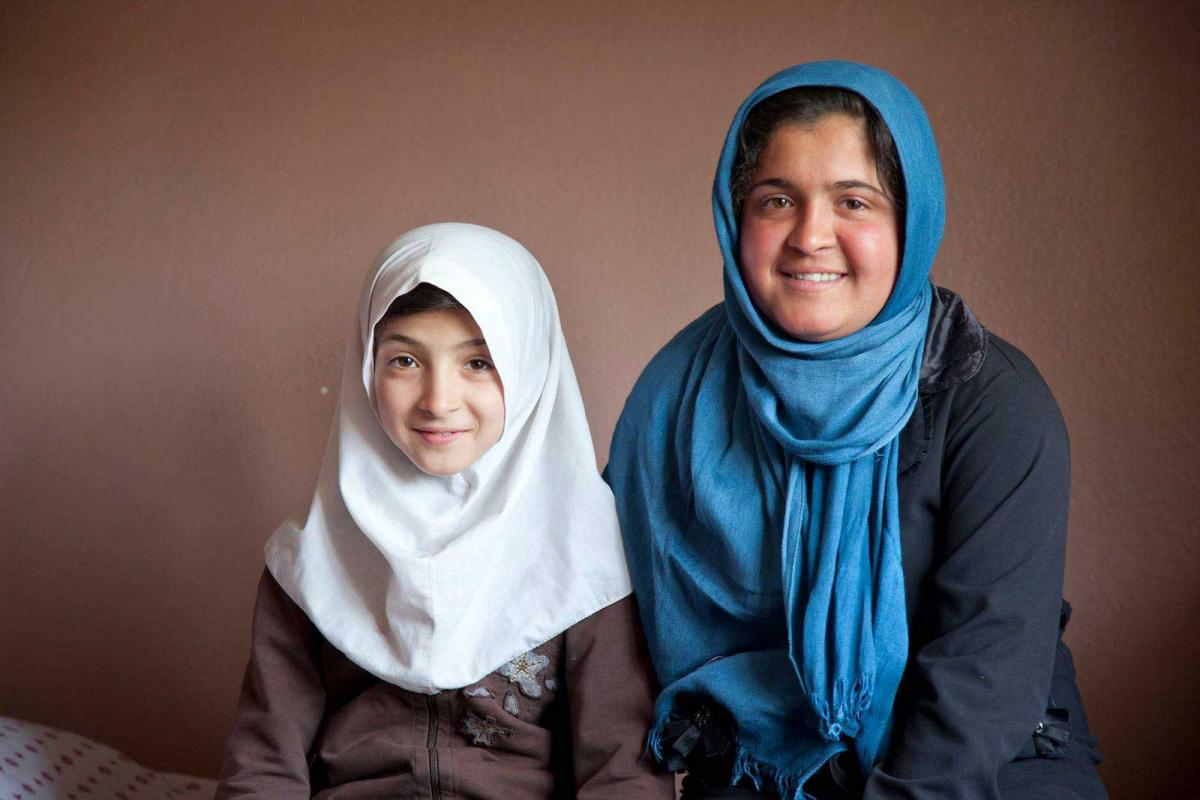
Sakena’s teachers at the orphanage
There are hundreds of girls at the orphanage in the city of Herat, aged from three to eighteen. There are also som boys here, but they are moved to another orphanage when they are ten or eleven years old. The orphanage children sleep in bunk beds and eat meals in a large hall. Around ten women take care of them. In the yard, there is a play park with swings and slides, and inside there is a TV and a classroom. The orphanage is run by the government of Afghanistan, but six days a week, teachers from Sakena Yacoobi’s organisation, the Afghan Institute of Learning (AIL), come in to teach the children. Most, but not all, of the children also attend the school next door.Text: Jesper HuorPhoto: Makan E-Rahmati
Related stories
Långgatan 13, 647 30, Mariefred, Sweden
Phone: +46-159-129 00 • info@worldschildrensprize.org
© 2020 World’s Children’s Prize Foundation. All rights reserved. WORLD'S CHILDREN'S PRIZE®, the Foundation's logo, WORLD'S CHILDREN'S PRIZE FOR THE RIGHTS OF THE CHILD®, WORLD'S CHILDREN'S PARLIAMENT®, WORLD'S CHILDREN'S OMBUDSMAN®, WORLD'S CHILDREN'S PRESS CONFERENCE® and YOU ME EQUAL RIGHTS are service marks of the Foundation.



